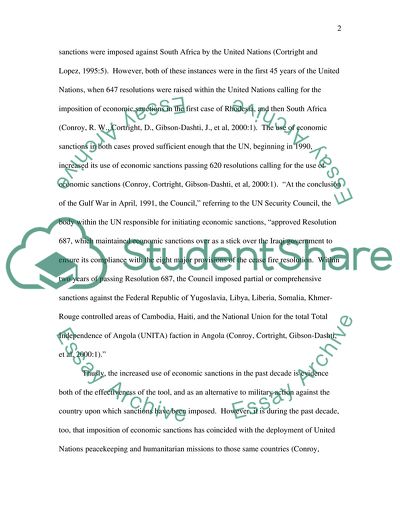Cite this document
(The Imposition of Multilateral Economic Sanctions Case Study, n.d.)
The Imposition of Multilateral Economic Sanctions Case Study. Retrieved from https://studentshare.org/macro-microeconomics/1705898-which-purposes-do-economic-sanctions-serve
The Imposition of Multilateral Economic Sanctions Case Study. Retrieved from https://studentshare.org/macro-microeconomics/1705898-which-purposes-do-economic-sanctions-serve
(The Imposition of Multilateral Economic Sanctions Case Study)
The Imposition of Multilateral Economic Sanctions Case Study. https://studentshare.org/macro-microeconomics/1705898-which-purposes-do-economic-sanctions-serve.
The Imposition of Multilateral Economic Sanctions Case Study. https://studentshare.org/macro-microeconomics/1705898-which-purposes-do-economic-sanctions-serve.
“The Imposition of Multilateral Economic Sanctions Case Study”. https://studentshare.org/macro-microeconomics/1705898-which-purposes-do-economic-sanctions-serve.


